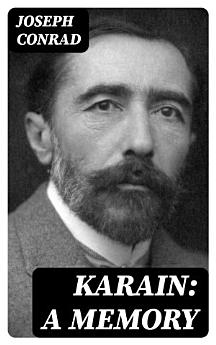Karain: A Memory
Hul 2022 · DigiCat
E-book
39
Mga Page
family_home
Kwalipikado
info
reportHindi na-verify ang mga rating at review Matuto Pa
Tungkol sa ebook na ito
In 'Karain: A Memory,' Joseph Conrad expertly weaves a narrative that grips the reader with its evocative depiction of European colonialism's disturbing realities. This novella, with its richly-layered prose and dense, atmospheric tone, harks back to the literary traditions of the late 19th and early 20th centuries. Conrad's mastery of English, notwithstanding it being his third language, shines through in the intricate psychological depth and haunting quality of the tale, echoing the dark themes of his magnum opus, 'Heart of Darkness.' The story unfolds in a fraught setting that bends the line between memory and myth, confronting imperialism's stark brutalities through both a powerful visceral and natural imagery. Joseph Conrad, born Józef Teodor Konrad Korzeniowski, was a visionary writer whose own seafaring experiences deeply informed his contemplation of the human condition and the imperialist ethos of his time. His insightfulness into the complexities of the human psyche and the moral ambivalence of colonial endeavors positions him as a significant conduit for the preoccupations and anxieties of the early modernist era. 'Karain: A Memory,' is an outcome of his profound engagement with the peripheries of civilization and the corrosive influence of Western imperialism, themes that loom large throughout his esteemed body of work. 'Readers will find 'Karain: A Memory' an unrelenting exploration of conscience, folklore, and the inescapable legacy of colonial exploitation. Scholars and enthusiasts of literature alike will appreciate the novella as an essential study in moral ambiguity, portrayed with a lyrical finesse that is quintessentially Conrad. It is recommended for those who seek to delve into a work that challenges the exoticism often associated with the East, instead revealing the darker shades of colonial enterprise through the gauze of Conrad's penetrating examination of the human spirit.
Tungkol sa may-akda
Joseph Conrad, born Józef Teodor Konrad Korzeniowski on December 3, 1857, in Berdychiv, Ukraine, then part of the Russian Empire, was a Polish-British writer whose narrative style and anti-heroic characters have placed him as a key figure in the canon of English literature. Conrad's experiences in the French and, later, British merchant marines provided fertile ground for his creative output, with much of his literary work reflecting the complexities and isolation inherent in a life at sea. He wrote in English, his third language, after Polish and French, which imbued his prose with a distinctive linguistic texture. Among his notable works is 'Karain: A Memory,' a short story that showcases Conrad's signature themes of loyalty, betrayal, and the psychological depths of individuals faced with moral dilemmas. This work, as with many others like 'Heart of Darkness' (1899) and 'Lord Jim' (1900), illustrates Conrad's preoccupation with the intricacies of the human psyche and the often-impenetrable forces that govern human actions and histories. Conrad's influence extends beyond literature into the realm of cultural studies and psychology, with his dense, reflective style and exploration of existential uncertainties resonating through modernist and postmodernist narratives. His writings continue to be studied and admired for their penetrating insights into the human condition and the captivatingly dark beauty of his prose. Conrad's legacy as a literary craftsman and a profound thinker endures, and his works remain a touchstone for readers seeking to comprehend the nuanced interplay of culture, identity, and psychosocial dynamics. He passed away in Bishopsbourne, England, on August 3, 1924.
I-rate ang e-book na ito
Ipalaam sa amin ang iyong opinyon.
Impormasyon sa pagbabasa
Mga smartphone at tablet
I-install ang Google Play Books app para sa Android at iPad/iPhone. Awtomatiko itong nagsi-sync sa account mo at nagbibigay-daan sa iyong magbasa online o offline nasaan ka man.
Mga laptop at computer
Maaari kang makinig sa mga audiobook na binili sa Google Play gamit ang web browser ng iyong computer.
Mga eReader at iba pang mga device
Para magbasa tungkol sa mga e-ink device gaya ng mga Kobo eReader, kakailanganin mong mag-download ng file at ilipat ito sa iyong device. Sundin ang mga detalyadong tagubilin sa Help Center para mailipat ang mga file sa mga sinusuportahang eReader.




